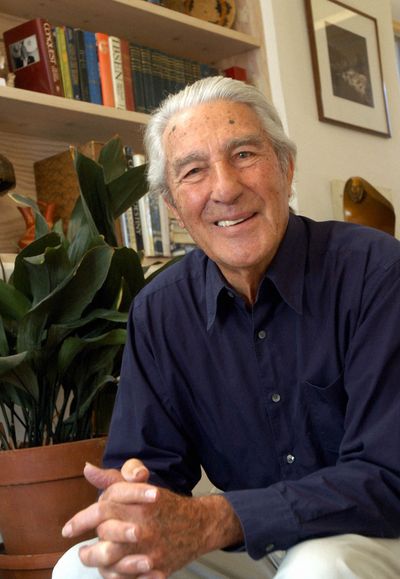Early public lands champion dies
Stewart Udall led Interior in 1960s

SANTA FE, N.M. – Stewart Udall, who sowed the seeds of the modern environmental movement as secretary of the interior during the 1960s and later became a crusader for victims of radiation exposure from the government’s Cold War nuclear programs, died Saturday. He was 90.
A statement from Udall’s family, released through the office of his son, Sen. Tom Udall, D-N.M., said he died of natural causes at his home in Santa Fe, surrounded by his children and their families.
Udall, brother of the late 15-term congressman Morris Udall, served six years in Congress as a Democrat from Arizona, and then headed the Interior Department for eight years under Presidents Kennedy and Johnson. His son Tom and nephew Mark also became congressmen, then both were elected to the Senate in 2008.
Under Stewart Udall’s leadership from 1961 through 1968, the Interior Department aggressively promoted an expansion of public lands and helped win enactment of major environmental laws, including ones to protect endangered species.
Udall helped write several of the most far-reaching pieces of legislation, including the Wilderness Act of 1964, which protects millions of acres from logging, mining and other development.
“I never lost an argument with the budget people under either Kennedy or Johnson. If you had a new national park or a new policy on wilderness or something on wild rivers … they’d say, ‘Go ahead. It’s a good idea,’ ” Udall once said in an interview.
More than 60 additions were made to the National Park system during the Udall years, including Canyonlands National Park in Utah, North Cascades National Park in Washington, Redwood National Park in California and the Appalachian National Scenic Trail stretching from Georgia to Maine.
In a 1963 book, Udall warned of a “quiet conservation crisis” from pollution, overuse of natural resources and dwindling open spaces. He appealed for a new “land conscience” to preserve the environment.
“If in our haste to ‘progress,’ the economics of ecology are disregarded by citizens and policy makers alike, the result will be an ugly America,” Udall wrote. “We cannot afford an America where expedience tramples upon esthetics and development decisions are made with an eye only on the present.”
After leaving government service, Udall taught, practiced law and wrote books. In 1979, he left Washington to return home to Arizona.
In a 1994 book, Udall reassessed the actions of his own generation and criticized the rush to develop the atomic bomb, its use against Japan and decades of government secrecy in what he described as “our tragic affair with the atom.”
“So many people of my generation who served in the government were prisoners of the Cold War culture, still are. But maybe there is value in somebody like me breaking away,” he said. “What I’m trying to be is provocative. I’m trying to encourage my children’s generation and the other ones coming to return to basic American principles.”